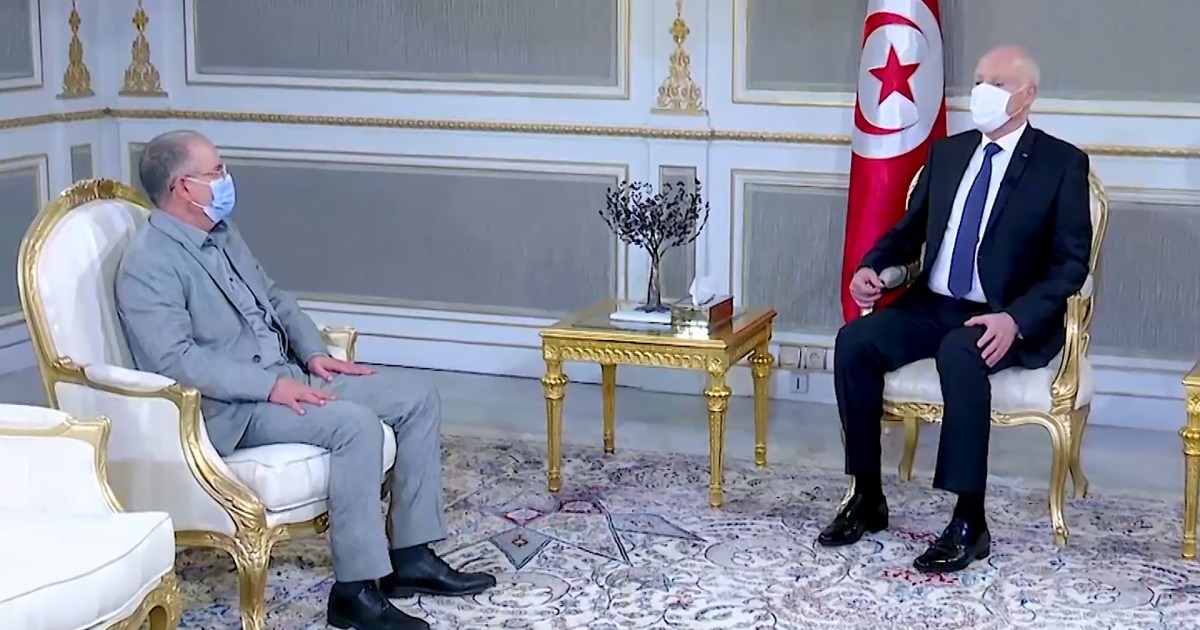Tunisian President Kais Saied said that he will not tolerate those who try to overthrow the state or employ its facilities, and he will not negotiate with those he called thieves, while the Secretary-General of the Tunisian Labor Union Noureddine Taboubi called on him in a meeting they brought together yesterday, Sunday, to involve the political forces in making the next stage, And be calm.
The Tunisian president said that he will not tolerate those who try to overthrow the state or use its facilities, which he said should remain public and impartial. He added that he accepts discussion from "parties ready for dialogue and negotiation to make a new history for Tunisia," stressing that he will not accept dialogue with "thieves." , in reference to the looters of public money.
Qais Saeed spoke about the completion of the penal conciliation law next week, which aims to recover the looted funds by offering conciliation with those accused of looting public money.
The Tunisian president stated that he is ready to work jointly with the union based on what he described as national constants and convictions, stressing the importance of the national and historical role of the trade union organization, and the labor union is the strongest trade union in Tunisia and has a great ability to mobilize the street.
Involve politicians
For his part, the Secretary-General of the Tunisian Labor Union called on the Tunisian president to show calm, prudence, and true national solidarity to overcome the difficult stage the country is going through. Taboubi also called for the involvement of political forces because they frame society, stressing the protection of freedom of expression, peaceful demonstration and freedom of the media, which cannot be violating it as described.
The meeting of Qais Saeed and Noureddine Taboubi came after a situation described as apathy in the relationship between the Tunisian presidency and the Labor Union, as the union accused the Tunisian president and the government of unilaterally making the decision, and the union said in a statement on the occasion of the 11th anniversary of the Tunisian revolution - which took place last Friday - that there are economic and financial decisions Unilateral, with the absence of the will to make a real change in the country's budget for the current year.
The statement added that there is a tendency towards exclusivity in most of the fateful decisions, including negotiations with international financial circles, in addition to a growing tendency of hostility to union work and placing obstacles in front of it.
public consultation
In a related context, the electronic popular consultation called by the President of the Republic was launched in Tunisia as part of the road map he announced to end the exceptional stage.
This consultation, which will continue until next March 20, aims to listen to the proposals of Tunisians regarding political and constitutional reforms to be submitted to a popular referendum.
It should be noted that Tunisia has been witnessing a worsening political crisis since last July 25, when President Said imposed exceptional measures, including freezing the competencies of Parliament, issuing legislation by presidential decrees, dismissing the prime minister, and appointing new ones.
The majority of political and civil forces in Tunisia, including Ennahda, reject the exceptional measures and consider them a coup against the constitution, while other forces support them and see them as a correction to the course of the 2011 revolution, which overthrew the rule of then-President Zine El Abidine Ben Ali.

